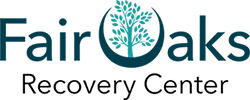Asking for help can feel like navigating a maze of vulnerability, each step fraught with uncertainty and apprehension. It’s not merely admitting a lack of capability or knowledge—it’s unveiling a slice of our inner world, exposing aspects of ourselves we may work tirelessly to conceal. While having healthy boundaries is critical to wellness, so is recognizing that every human benefits when we help each other.
Wait—People Really Do Want to Help?
By most theories and studies, yes. For example, you may have heard or even already know how helping others is an essential part of recovery. But why? The Greater Good Science Center at the University of California, Berkeley, indicates it’s because the value of altruism—“when we act to promote someone else’s welfare”—is hardwired into our humanity. The organization references some key points, which we provide verbatim:
- Altruism makes us happy: Researchers have consistently found that people report a significant happiness boost after doing kind deeds for others.
- Altruism is good for our bottom line: Studies suggest that altruists may reap unexpected financial benefits from their kindness because others will feel compelled to reward their kindness.
- Altruism fights addiction: Studies have shown that addicts who help others, even in small ways, can significantly improve their chances of staying sober and avoiding relapse.
- Altruism promotes social connections: When we give to others, they feel closer to us, and we also feel closer to them.
- Altruism is contagious: When we give, we don’t only help the immediate recipient of our gift. We also spur a ripple effect of generosity through our community.
But what does this all have to do with why you shouldn’t be afraid to ask for help? Basically, trust that it’s all one big circle: the more inclined we are to help others, the greater the chance they’ll help us. We just have to make that step. So why is it so hard?
Here’s What the Research Says
Xuan Zhao is a scientist at Stanford University’s SPARQ behavioral science center. She’s studied this topic extensively and concludes asking for help is hard because:
- We consider it a form of weakness or incompetence. Zhao says current research indicates that even young children believe this.
- We fear rejection, “which can be embarrassing and painful.”
- We often have “a concern about burdening or inconveniencing others.”
However, Zhao also notes that “these concerns may feel more relevant in some contexts than others, but they are all very relatable and very human.” She adds that we often are so caught up in our own concerns—such as appearing vulnerable—and worries that we don’t “fully recognize the prosocial motivations of those around them who are ready to help.”
Nora Bouchard, an author and leadership coach, offers another perspective. “People are hardwired to want to do things on their own,” she points out in this interview with CNBC. “Asking for help often makes people feel uneasy because it requires surrendering control to someone else. There are some people who really have a hard time with that piece of it.”
While this view might relate to Zhao’s point about not wanting to inconvenience another person, there might also be a deeper, more troubling reason: some people develop what’s known as hyper-independence trauma, a stress response often developed as a maladaptive coping mechanism to adverse childhood experiences and other negative encounters. As a form of protection, hyper-independence leads you to:
- Take on more than you can handle.
- Refuse offers for help.
- Struggle with asking for support or delegating tasks.
Left unaddressed, this behavior continues to affect your ability to trust in and form meaningful relationships with others.
How to Ask For Help
The journey of asking for help is a delicate dance between a desire for autonomy and the recognition of our shared humanity, where the simple act of reaching out becomes a testament to resilience and growth. One of the strongest examples of giving and receiving help is in a recovery support group such as a 12-Step program, Celebrate Recovery, Gay and Sober, SMART Recovery, and Women for Sobriety, to name a few.
Zhao says that according to Stanford’s research, sometimes asking for help is simply recognizing when someone is in a position to do so, and then all you have to do is approach them. “In some other cases, the kind of help you need may require more specific skills or resources,” she adds.
She recommends also trying the goal-setting approach of S.M.A.R.T. to refine what you need help with before reaching out to someone. The acronym stands for:
- Specific
- Meaningful
- Action-oriented
- Realistic
- Time-bound
“Of course, not all requests have to be specific. It’s okay to reach out to mental health resources and take the time to figure things out together. They are there to help, and they are happy to help,” Zhao states. “I’ve seen people who have struggled for too long until it was too late to ask for help. I hope my findings can offer them a bit more comfort the next time they can really use a helping hand and are debating whether they should ask.”
The Greater Good Science Center has an interesting podcast that explores how to feel better asking for help.
Find the Help You Deserve at Fair Oaks
The board-certified professionals at Fair Oaks Recovery Center in Sacramento, California, understand how challenging it can be to pursue better health. However, we’ve earned the status of a licensed Chemical Dependency Recovery Hospital. This designation is granted by the California Department of Public Health to addiction rehabilitation and dual diagnosis treatment facilities that provide high-level acuity care. Our goal is to always provide the resources you need to enhance your best self—mind, body, and spirit.



